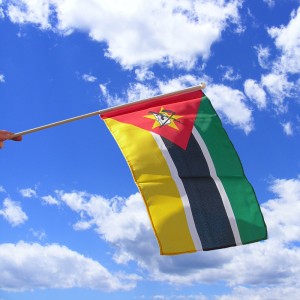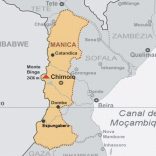Mozambique: Mapping of cargo could enable coastal shipping
Economic freedom drops in Mozambique

Economic freedom has regressed in Mozambique in the last year, according to the 23rd Heritage Foundation index. Of 180 countries, Mozambique appears in 158th position, with 49.9 points out of 100 possible. Contributory factors were poor fiscal health, the government’s increasingly poor integrity, lack of judicial effectiveness and weak protection of property rights.
The classification puts Mozambique on the threshold of the “repressed” classification, after reaching positive levels in 2012 of 59.9 points before entering free fall. A country below 50 on the 0-100 scale is considered repressed, between 50 to 59 is “mostly unfree”, between 60 and 70 “moderately free”, between 70 and 80 “mostly free” and above 80 is considered “free”.
Fiscal health gains the lowest score with just 22.7 points, due to the state budget deficit and public debt of 74.8 percent of gross domestic product, even before the discovery of the Proindicus, EMATUM and MAM loans that violated budget law, and were are expected to be unsustainable.
In the “Executive Size” category, the index highlights government expenditure as well as the overall weight of the tax burden, which amounts to 25.1 percent of domestic expenditures.
“Top individual income and corporate tax rates are 32 percent. Other taxes include a value-added tax and an inheritance tax. The overall tax burden equals 25.1 percent of total domestic income. Government spending has amounted to 37.3 percent of total output (GDP) over the past three years, and budget deficits have averaged 6.4 percent of GDP. Public debt is equivalent to 74.8 percent of GDP,” the report reads.
In the category of “Rule of Law”, all three pillars are negative. “Although property rights are recognized by the government, they are not consistently respected, and enforcement of property law is inefficient and uneven. The judiciary is understaffed, inadequately trained, and subject to political influence. Corruption and extortion by police are widespread, and impunity remains a serious problem. Senior government officials often have conflicts of interest between their public roles and their private business interests.”
In the “Regulatory Efficiency” category of the freedom to do business is assessed positively, just as the circulation of money is considered very free, but the freedom to work, particularly in relation to the restrictions on extraordinary work, is negatively assessed.
In the “Open Market” category the balance is considered good. “Trade is important to Mozambique’s economy; the value of exports and imports taken together equals 92 percent of GDP. The average applied tariff rate is 4.2 percent. All land is owned by the government, and state-owned enterprises distort the economy. Dominated by banking, the financial sector continues to evolve. The state retains shares in the banking sector, and a government-owned investment bank funnels funding to state projects.”
The report says that “Mozambique has undertaken reforms to encourage economic development, although progress has been very gradual. Private-sector involvement in the economy is substantial, but privatization of state-owned enterprises has slowed. Foreign capital is treated the same as domestic capital in most cases, and trade liberalisation has progressed”.
To access the full report, you may go here: http://www.heritage.org/index/country/mozambique












Leave a Reply
Be the First to Comment!
You must be logged in to post a comment.
You must be logged in to post a comment.